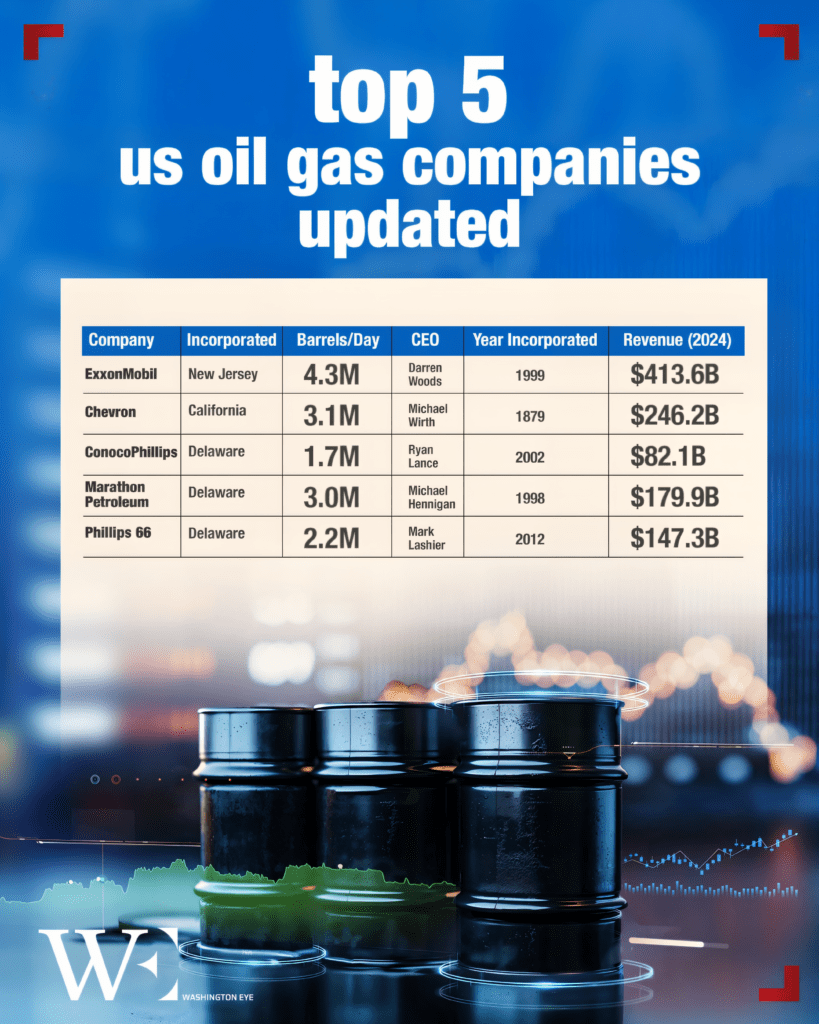In a high-profile gathering bringing together leaders from ExxonMobil, Chevron, and other major players, President Donald Trump hosted a closed-door meeting at his Mar-a-Lago resort on March 19th to discuss regulatory rollbacks and policies that could shape the future of U.S. energy production.
Deregulation and Permitting: Industry’s Top Priorities
One of the key demands from oil executives in this meeting was the acceleration of project approvals. Industry leaders expressed concerns that the current permitting process is too slow and restrictive, hampering their ability to expand operations and increase domestic energy production.
President Trump and his administration signaled a willingness to scale back environmental regulations, particularly those that affect drilling, pipeline construction, and refinery expansions. According to insiders, Interior Secretary Doug Burgum emphasized the importance of “cutting bureaucratic red tape” to maintain America’s global energy dominance.
Some analysts warn, however, that extensive deregulation could lead to heightened environmental risks, including increased carbon emissions and potential land degradation. Environmental groups have already vowed to challenge any rollback efforts in court.
Tariffs, Trade, and Market Concerns
While oil executives expected to discuss concerns over President Trump’s proposed tariffs on foreign goods—particularly steel and aluminum, which are essential for pipeline construction—the topic was reportedly not a focal point of the meeting. Instead, the conversation centered on how the administration plans to maintain low domestic fuel prices while ensuring profitability for U.S. producers.
With global energy markets still recovering from post-pandemic fluctuations and geopolitical tensions affecting supply chains, industry leaders are lobbying for policies that would offer stability in pricing while keeping the U.S. competitive against foreign producers, particularly in the Middle East and Russia.
The Push for More Fossil Fuel Investment
Another major point of discussion was increasing investment in fossil fuel projects despite growing pressure to transition to renewable energy. Executives urged President Trump to support new tax incentives for oil and gas exploration, arguing that continued reliance on traditional energy sources is necessary for national security and economic growth.
During the meeting, there was also debate over policies implemented during the Biden administration, such as the Inflation Reduction Act, which provided subsidies for green energy initiatives. Oil executives claimed that an overemphasis on renewables could weaken the U.S. energy sector, while Trump reassured them that his policies would prioritize fossil fuels over wind and solar development.
What’s Next? A Political Battleground
This meeting highlights the significant role that energy policy will play in Trump’s second term. His alignment with the oil industry contrasts sharply with Democratic-led efforts to accelerate the transition to clean energy. As both sides gear up for a heated political battle, oil companies are expected to invest heavily in lobbying efforts to ensure their priorities remain at the forefront of policy discussions.
The meeting concluded without any formal policy announcements, but insiders suggest that more discussions are likely to take place in the coming months. With Trump’s administration promising a return to “American energy independence,” the fossil fuel industry is betting on his leadership to roll back regulatory constraints and boost domestic production.
A Final Note
The White House meeting between President Trump and oil executives underscores the continuing power struggle over U.S. energy policy. While the industry is optimistic about potential deregulation, environmental groups and clean energy advocates are preparing to resist any rollback efforts. With energy policy set to be a cornerstone of Trump’s second term, the outcome of these discussions could have a lasting impact on the nation’s energy landscape.













